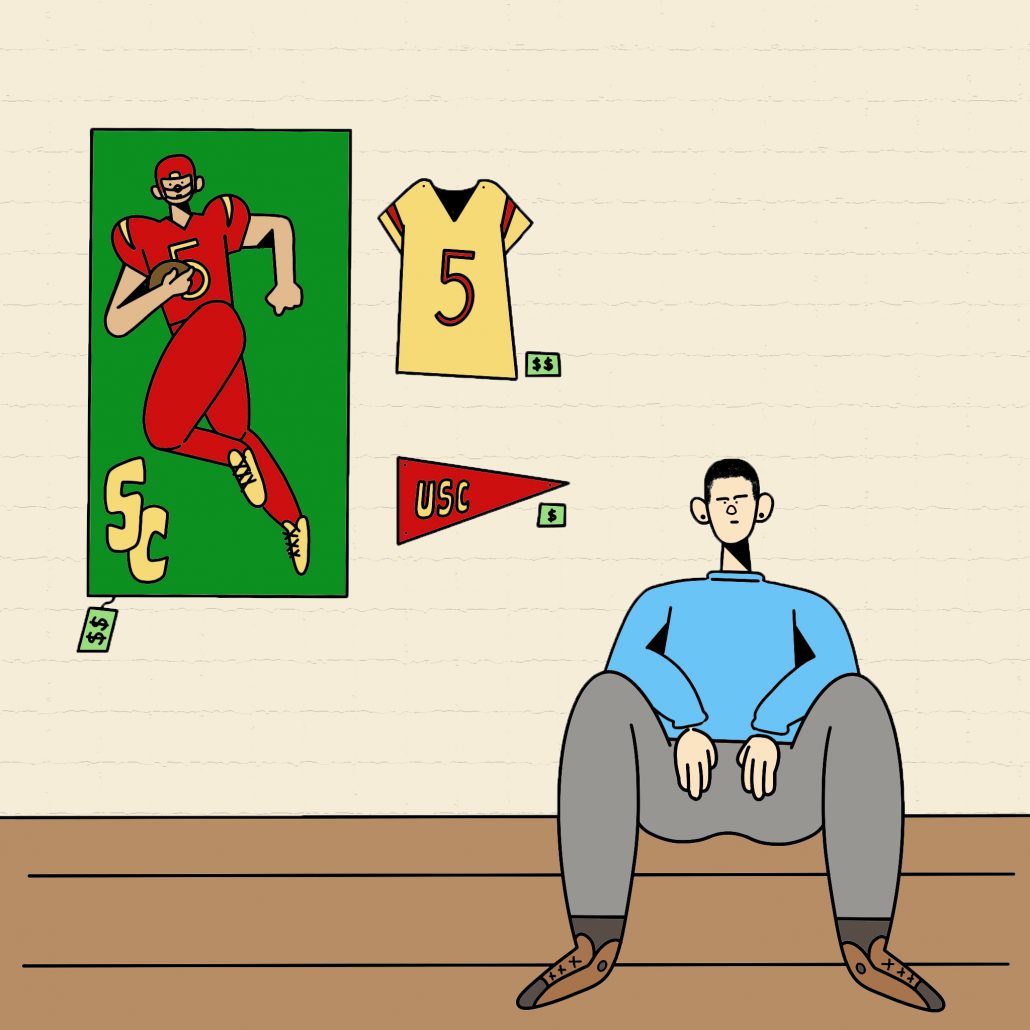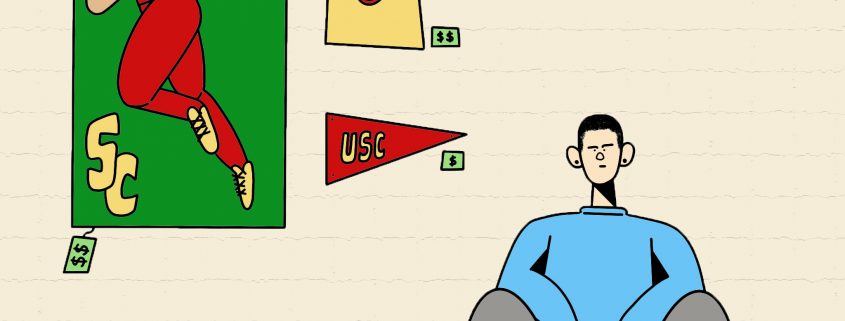NCAA rules against compensating athletes are unfair

California is weighing legislation that would allow collegiate athletes to earn money through personal sponsorship deals, a policy currently prohibited by the National Collegiate Athletics Association. The California State Senate discussed SB 206, dubbed the “Fair Pay to Play Act,” and passed it by a margin of 31-5 on May 22. The second chamber of California’s legislative branch has yet to approve the bill but will discuss the proposition in mid-August, upon returning from its summer recess. If passed and signed by the governor, it would go into effect in January 2023.
Despite the major strides the bill has made, several California universities — including USC — have come together to try and put a stop to the legislation. USC and Stanford University each released a statement expressing their opposition to the bill. The University of California and California State University systems also went on the record opposing SB 206.
“We believe that any reforms must be addressed at the national level through the NCAA. Any reforms approved at the state level would place the schools in that state at a competitive disadvantage with other national programs,” USC said in a statement in June. “SB 206 would encourage students to violate the NCAA bylaws, becoming athletically ineligible and putting athletic teams and athletic departments at risk.”
The argument that the California bill conflicts with the NCAA’s national policy is ironic. California has passed criminal and state laws that conflict with United States federal law, so surely they can accept an athletic revenue policy that conflicts with a sports organization.
And regardless, California has been a leader in challenging national policy. The state has been at the forefront of countless legal battles with other states and with federal policies. Virtually every time, California has come out the victor. For example, national automobile emissions policies were changed because California took leadership and adopted a stricter standard — one that went against the federal policy.
USC also fears the NCAA will sanction its sports teams and make players ineligible for competition, resulting in revenue loss for the University.
That said, it is understandable why the University is opposed to the measure: The NCAA is kicking USC around and has been the source of much of USC’s athletic anguish in recent years.
Several past athletic scandals involving players accepting unauthorized gifts from professional agents resulted in some of the most severe NCAA sanctions in the organization’s history. The NCAA vacated the University’s football team’s final two wins of its 2004 national championship season and all wins in 2005. USC was banned from bowl games in both 2010 and 2011 and was docked a total of 30 scholarships over three years. Other sanctions include the basketball team having to give up all of its wins from the 2006-07 season and being banned from the playoffs in 2010. Trojan fans are still reminded of the 2018 basketball scandal, in which former assistant coach Tony Bland bribed players to commit to USC, that rocked the NCAA as well. Given the University’s history with NCAA, it makes sense that it would rather play it safe and get on the NCAA’s good side.
For decades, the NCAA has taken advantage of the most talented crop of high school athletes in the country. Instead of allowing these athletes to sign professional contracts with major leagues, the NCAA brokered a deal requiring athletes to play collegiate-level sports before going pro. The reason is purely for to generate revenue — if the best athletes signed professional deals and skipped college sports, the collegiate season would be less competitive and entertaining to watch so fewer fans would tune in.
But the NCAA takes it a step further: Not only does it require athletes to wait a few years before signing big-money professional contracts, but it also prohibits athletes from signing individual sponsorship deals that would allow them to make any money at all from their own likeness. The NCAA wants sponsors to work through its organization, so it can reap the rewards of these deals instead of the players themselves.
The collegiate sports organization has, of course, publicly opposed SB 206 as well. It says it is completing a study about what private athletic endorsements would do to the league, but really, it’s just afraid of losing its monopoly on athletes. It doesn’t want its revenue to decline. USA Today even reported that the NCAA threatened the California legislature with banning schools from NCAA championships if SB 206 passed.
Let’s see how excluding California schools will play out. This is a showdown the NCAA won’t want to pursue.
If USC — or any California school — has any courage, it will allow its athletes to pursue their own, private business deals.

